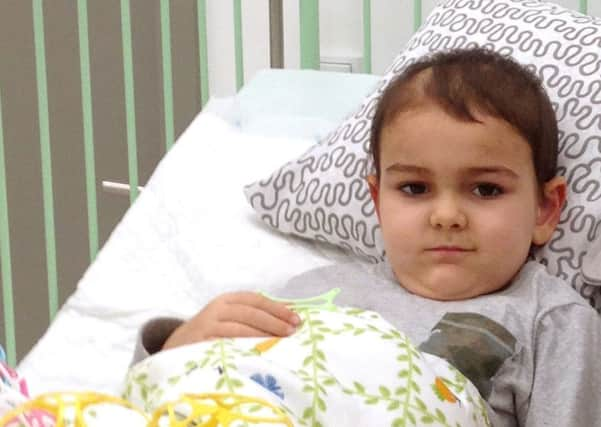Prague doctors say Ashya's case sped up UK's acceptance of cancer treatment


The six-year-old, from Southsea, sparked an international manhunt back in 2014 when his parents removed him from NHS care to undergo proton therapy in the Czech Republic against the wishes of his doctors.
Ashya was later declared cancer-free and the government agreed to invest £250m in building and equipping two new proton therapy centres in the UK.
Advertisement
Hide AdAdvertisement
Hide AdThe youngster’s doctors say they are celebrating the intensive rise of the treatment across the world – but have warned there is still a long way to go.
Vladimir Vondracek, head of clinical physics at the Protom Beam Therapy centre in Prague, said: ‘The Ashya King case certainly sped up the process of proton therapy becoming more accepted across the world.
‘Moving from photons to protons is inevitable, but maybe if Ashya’s case had not gained so much attention, then it would have taken the UK much, much longer to appreciate the technology. Perhaps six to nine years.
‘Since Ashya was treated at the centre we have had another 35 patients with the same diagnosis, and a 10-fold increase in patients coming from the UK.’
Advertisement
Hide AdAdvertisement
Hide AdProton beam therapy uses an accelerated beam of positively-charged particles to attack cancerous cells.
Unlike traditional radiotherapy using X-rays, it can pinpoint the exact area to target, meaning less damage to surrounding tissue.
In Ashya’s case, his brain tumour had already been operated on by doctors in Southampton before his parents sought treatment in Prague.
Two new NHS centres are currently being built in the UK. One will be housed at Manchester’s Christie Hospital and one at University College London.
Advertisement
Hide AdAdvertisement
Hide AdUntil they become operational in 2018, the NHS will continue to refer patients abroad for treatment.
Dr Jiri Kubes, clinical director of the Prague centre, said ‘It’s just a matter of time before people are more aware of proton therapy centres. When we started there were only 35 centres in the world, now there are more than 100.’